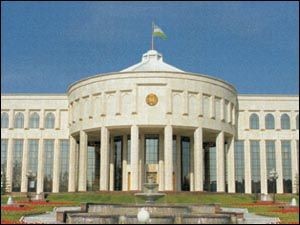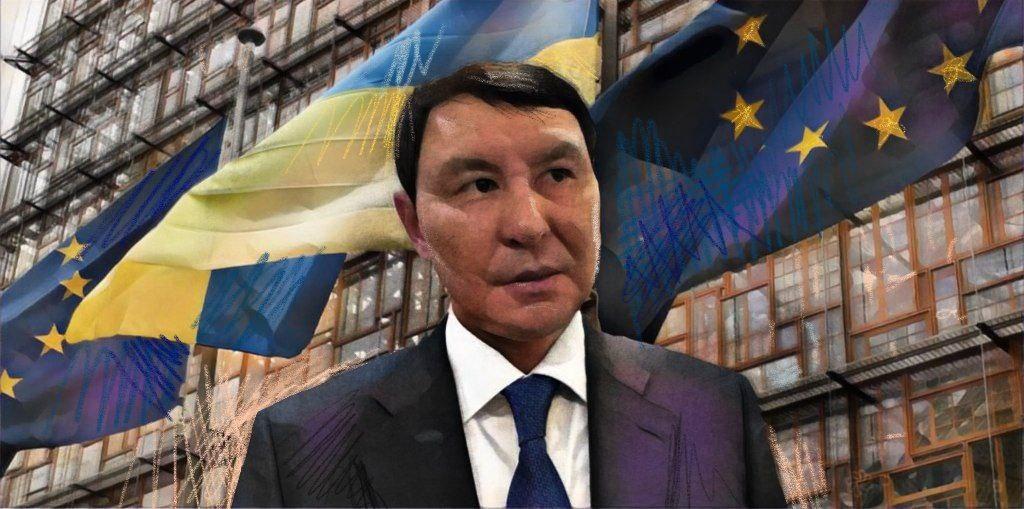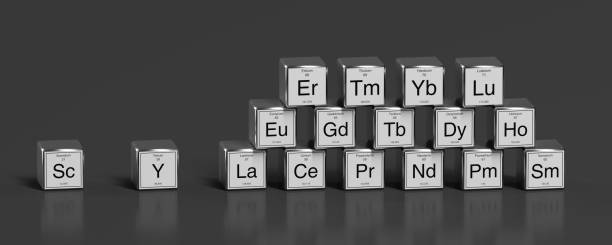TASHKENT (TCA) — As on September 8 Uzbekistan’s parliament appointed Prime Minister Shavkat Mirziyoyev as the country’s interim president and an early presidential election has been scheduled for December 4, we are republishing this article by Alexander Kim, originally published by The Jamestown Foundation’s Eurasia Daily Monitor:
The death of President Islam Karimov will be a serious test of Uzbekistan’s political stability. But contrary to most gloomy predictions, the country’s leadership was evidently much more prepared for a smooth transition upon Karimov’s departure than had been expected.
Central Asia’s most populous republic was initially following its constitutional procedures for the succession of the leader, where Nigmatilla Yuldashev—the heretofore chairman of the Senate—should have been named interim president (Uzmetronom, September 7), in accordance with Article 96 of the Constitution. Yuldashev was appointed to head the Senate only a year ago. His candidacy was then endorsed by the late Karimov, who reportedly suffered his first stroke in January 2015. A professional attorney, Yuldashev’s selection to chair the Senate, as argued by Uzbek analyst Alisher Ilhamov, was meant to strengthen the informal system of checks and balances in Uzbekistan’s politics, where the security bodies have tended to play a stronger role (CA-News, February 5, 2015).
But as reported by independent sources, Yuldashev withdrew his candidacy during a joint session of both chambers of the parliament in favor of Shavkat Mirziyoyev, the current prime minister (Ferghana.ru., September 8). Legally, the country should now conduct presidential elections within three months, approximately at the beginning of December.
Prime Minister Mirziyoyev, long discussed as the most likely heir to Karimov, presided over the late president’s funeral ceremony and accepted condolences from other world leaders, thus further raising his own profile. Since Karimov’s death, Mirziyoyev has already held important strategic discussions with his Russian counterpart, Dmitry Medvedev (Lenta.ru, September 3). Separately, Mirziyoyev also met with President Vladimir Putin, who came to Uzbekistan to honor Karimov’s memory (Gazeta.ru, September 6).
It is not clear if Mirziyoyev will be a truly independent figure; he is likely subject to informal influence from the late president’s closest circle, which also includes Rustam Azimov (deputy prime minister) and Rustam Inoyatov (head of the Security Service) (Zakon.kz, September 8). These three men are believed to be sharing power at the top, forming a kind of collective rule (Carnegie.ru, August 31). Footage from Karimov’s official funeral ceremony pointedly demonstrated that the trio is currently acting in full concordance: all three men were present and frequently seen standing side by side (СA-news.org, September 4, 5). Inoyatov, a long-time serving head of the security service, is believed to retain informal control. Meanwhile, Azimov, Mirziyoyev’s more pro-Western colleague, could succeed to the position of prime minister.
The leadership in Uzbekistan has been planning for a gradual reduction of presidential powers and an increase of parliamentarian rule since 2011. In April of that year, new amendments were introduced to the Constitution, including reformed rules for nominating and approving a prime minister. The candidate for this position is now nominated by the political party with the most seats in the Legislative Chamber (lower house) of the Oliy Majlis (national parliament), which strengthens the role of the parliament and the political parties (Norma.uz, April 25, 2011). Mirziyoyev was nominated prime minister by the Liberal Democratic Party on January 15, 2015, following these constitutional changes.
These reforms were introduced not so much to attain democratic rule (i.e. a system of checks and balances), but rather collective rule (whereby the prime minister is nominated and controlled by the political party, not the head of state). This guarantees that Uzbekistan’s political system is protected from a future leader’s potential usurpation of powers, and it is also hereditary—i.e., the collective will of a political party strictly follows the legacies (or families) of its first leaders.
Unlike in Kazakhstan, where the presidential family has been palpably strengthening its position over time, it is unclear whether the late Uzbekistani president seriously factored his own family members into the transition scenario. According to rumors, circulated in 2015, he had hoped that one of his daughters—Lola—would succeed him as president, and so he asked his closest circle to duly support and train her (Tengrinews, September 5, 2015). It seems that Karimov’s successor will ultimately be decided by Mirziyoyev, Azimov and Inoyatov.
The long-term stability of this ruling troika is difficult to predict. Clearly, its participants want to retain domestic political stability. But they are simultaneously seeking legitimacy and therefore largely following Uzbekistan’s established legal procedures dictating the leadership transition. They are undoubtedly experiencing outside pressure, but they will want to maintain a status quo on international issues.
A more difficult task for the troika will be to maintain Karimov’s legacy and particularly to preserve his family’s high status. In photos of the late president’s funeral, his family was remarkably represented solely by Karimov’s widow and younger daughter, Lola. But Islam Karimov’s surviving family is much larger than that and includes in-laws, nephews, cousins, etc. Nonetheless, it is doubtful that any of them will have any say in the make-up of the subsequent ruling regime. Still, the president’s family owns many valuable assets in the country, and Lola’s husband, Timur Tillyaev, is believed to control a large share of informal trade through the customs clearance companies. With Islam Karimov gone, there could arise new economic interests and motives to restructure the domestic financial sector, to privatize some state assets in a different way than ongoing privatization schemes envisage, or to adjust some of the current levers of economic control. And amidst such changing realities in the economic sphere, the new leadership will need to secure sufficient economic resources to be able to undertake populist policies.
Therefore, some changes may be expected in Uzbekistan’s economic policies—particularly vis-à-vis Russia. Given his country’s ongoing economic difficulties, the late President Karimov was already making more advances toward Russia. His spring 2016 visit to Moscow was unusually warm and full of promises to increase bilateral trade (RBC, April 26). As Mirziyoyev mentioned in his recent meeting with Medvedev, Tashkent will “go through all the projects and documents […and] follow President Karimov’s plans to work with [our] Russian friends” (Lenta.ru, September 3). Tighter relations with Russia could bring more economic benefits to the Central Asian republic—particularly, the legalization of its labor migrants, greater access to the Russian internal market, more investment in Uzbekistan by Russian energy giants Gazprom and Lukoil, as well as Moscow’s support in controversial regional water usage questions (see EDM, May 17, 26). Russia’s support will also legitimate and provide support domestically to the new regime. But would such a policy course truly be in line with President Karimov’s legacy, which for the last quarter century aimed to “to secure independence and sovereignty by all means?” The answer to this question will continue to develop for months to come.









